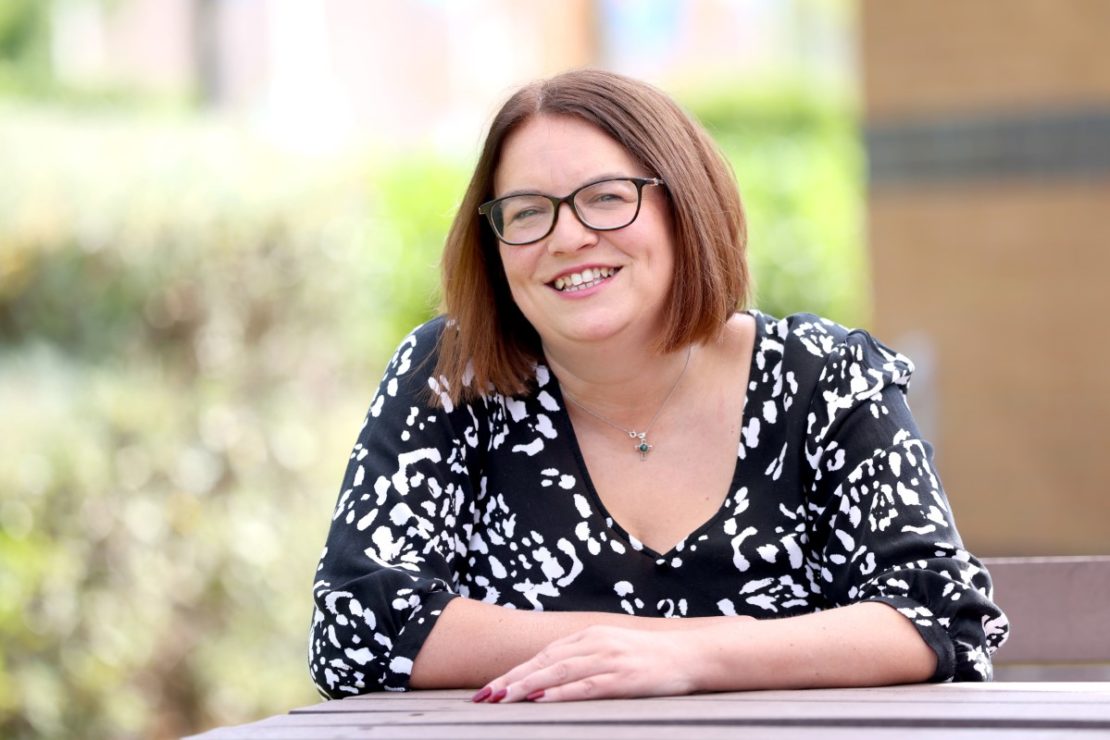
Only Human
Meet Dr Michelle Booth, Social Enterprise Manager at the BIC
Dr Michelle Booth is celebrating 30 years in social enterprise. She didn’t plan to end up in this world – but it turns out, it was exactly where she was meant to be.
To mark the milestone, she’s sharing one of the most powerful insights from her career: the extraordinary role women play in driving social enterprise forward, especially here in the North East.
I’ve spent three decades working in social enterprise, and if there’s one thing I’ve learned, it’s this: women are leading the charge.
Give me a room full of social entrepreneurs and I’ll be inspired by every single one of them. But look closer, and you’ll notice something truly amazing – women aren’t just present in the space, they’re shaping it.
Nationally, around 60% of social enterprises are led by women – nearly three times the rate of female leadership in traditional business sectors. And here in the North East, the numbers are even more striking:
- 71% of the BIC’s social enterprise clients are women
- 65% under our Wear Together contract in Sunderland
- 72.2% and 87% across our two Durham contracts
Why women thrive in social enterprise
Social enterprise is a space where women thrive. It’s inclusive, purpose-driven, and rooted in community. It’s empowering, collaborative, and empathetic – values that align with so many women.
Women by nature will tackle a problem by thinking ‘how can we do this together?’ Here’s why it works so well:
- They’re drawn to purpose as well as profit. Many want to challenge the status quo and create meaningful and social or environmental change. Social enterprise gives women the platform to do just that – solving real-world problems.
- They lead with empathy. Social enterprises often adopt holistic, human-centred approaches to business. That resonates with women who value collaboration, inclusivity, and long-term impact over short-term gain.
- They’re deeply connected to their communities. During my PhD research in Walker, Newcastle, I saw this first-hand. It’s a community led by women. They just get on with fixing things – saving their community centre, for example. Even if they don’t know how to do something, they know together they can figure it out.
- They inspire each other. Empowered women empower women. Seeing other successful female entrepreneurs can be a powerful motivator.
Here in the North East, we face more social challenges than most. It’s one of the most deprived regions in the country. So, we have more problems to fix – and that’s where the women rise up and say, “Right, let’s do something about it.”
Tailored support for a different kind of entrepreneur
At the BIC, we recognise that social entrepreneurs are driven by something different – and our support reflects that.
It’s a different person who sets up a social enterprise to who sets up a limited company. The reward isn’t profit – it’s being able to change someone’s life in some way.
That ethos runs through our team of 13 expert social enterprise advisers, where women outnumber men and bring a nurturing, empathetic approach to their work. Women like to see someone they can relate to – and that’s why role models matter.
You have to see it to believe it
Sometimes, I’ll introduce clients to Zoe Chandler of Weights and Cakes – a phenomenal Sunderland community interest company helping young people via Olympic weightlifting.
After spending time with Zoe, they’re so inspired to follow her example. And the most humbling thing? Zoe doesn’t even realise how incredible she is.
The Jack Russell spirit
Social enterprises are filling the gaps that the public sector can’t reach and the private sector won’t touch. They get into places other people won’t. I often liken them to a Jack Russell – little and tenacious. They’ll bite your trouser leg until you listen!
I’ve seen social entrepreneurs chase funders down corridors – not because they’re promoting their own interests, but because they’re fighting for something bigger than themselves.
From hotels to human impact
And while I didn’t set out to be part of this world, I’m so glad I found it.
Back in 1995, I was a student at Durham Sixth Form Centre with dreams of working in a five-star London hotel and doing a little bit of community volunteering to boost my university application. That was my first taste of the sector. By 1997, I was studying hospitality and business management at Nottingham Trent University, still chasing that vision – until a university placement in a community café changed everything. It ignited a spark in me that told me I could use my business knowledge to help others – and that was the direction my world took.
If I’m not developing social enterprises myself, I’m supporting others in realising their dreams, researching the field or teaching students about it. Passion led me here. It’s fuelled me for the past 30 years, and I wonder where it will take me next.
- Follow Michelle’s insights series on LinkedIn, where she shares other learning from her life so far in social enterprise